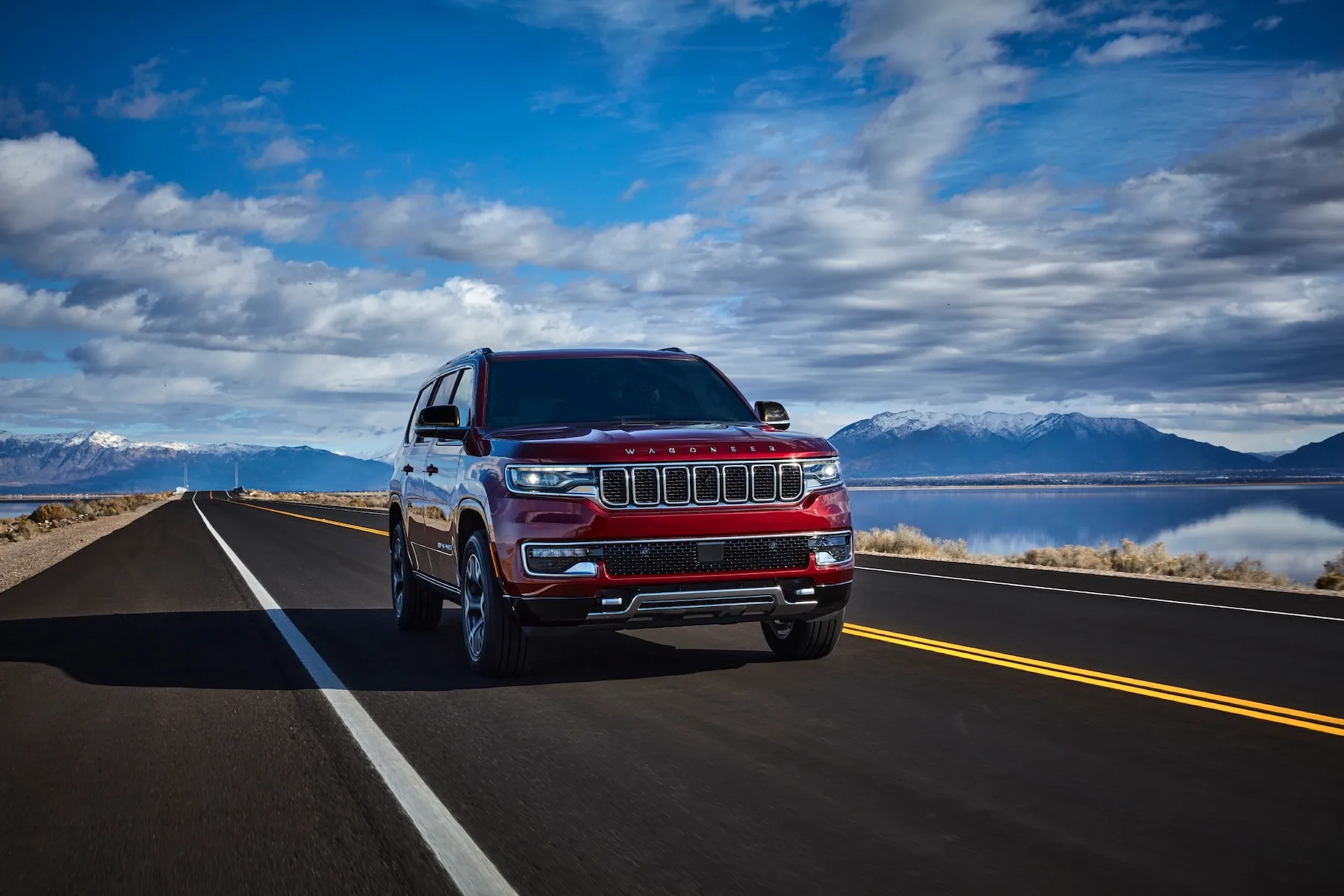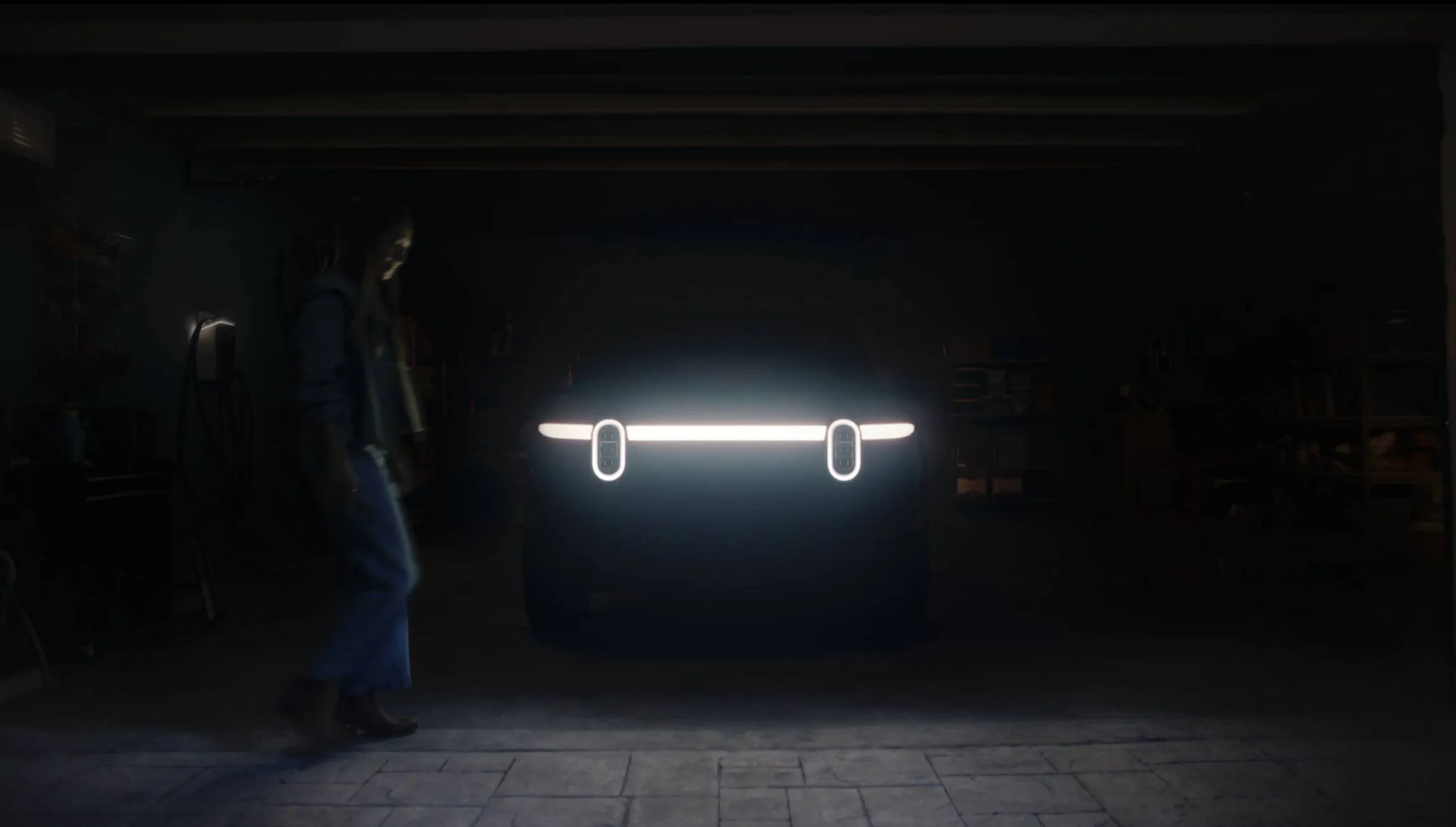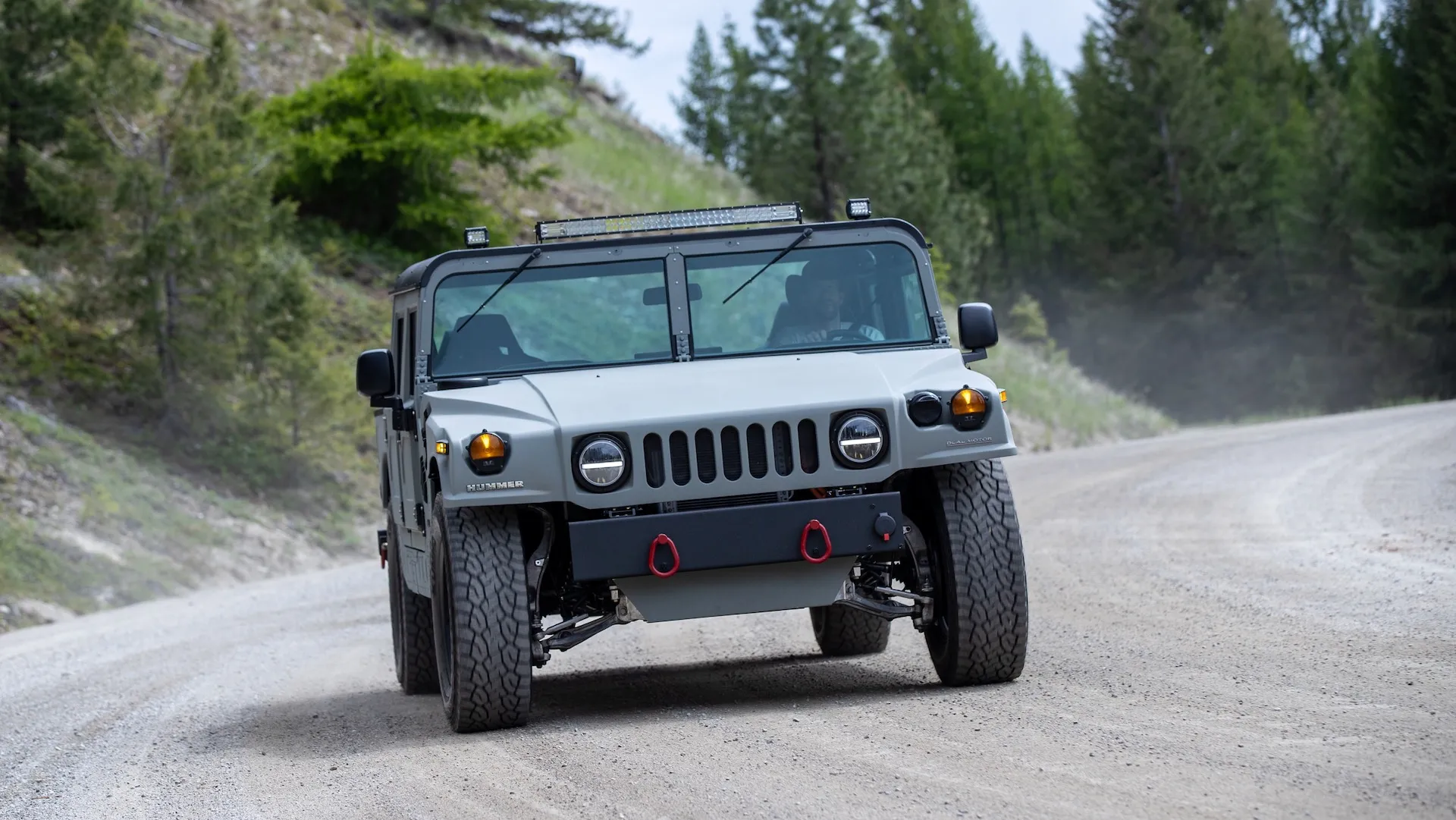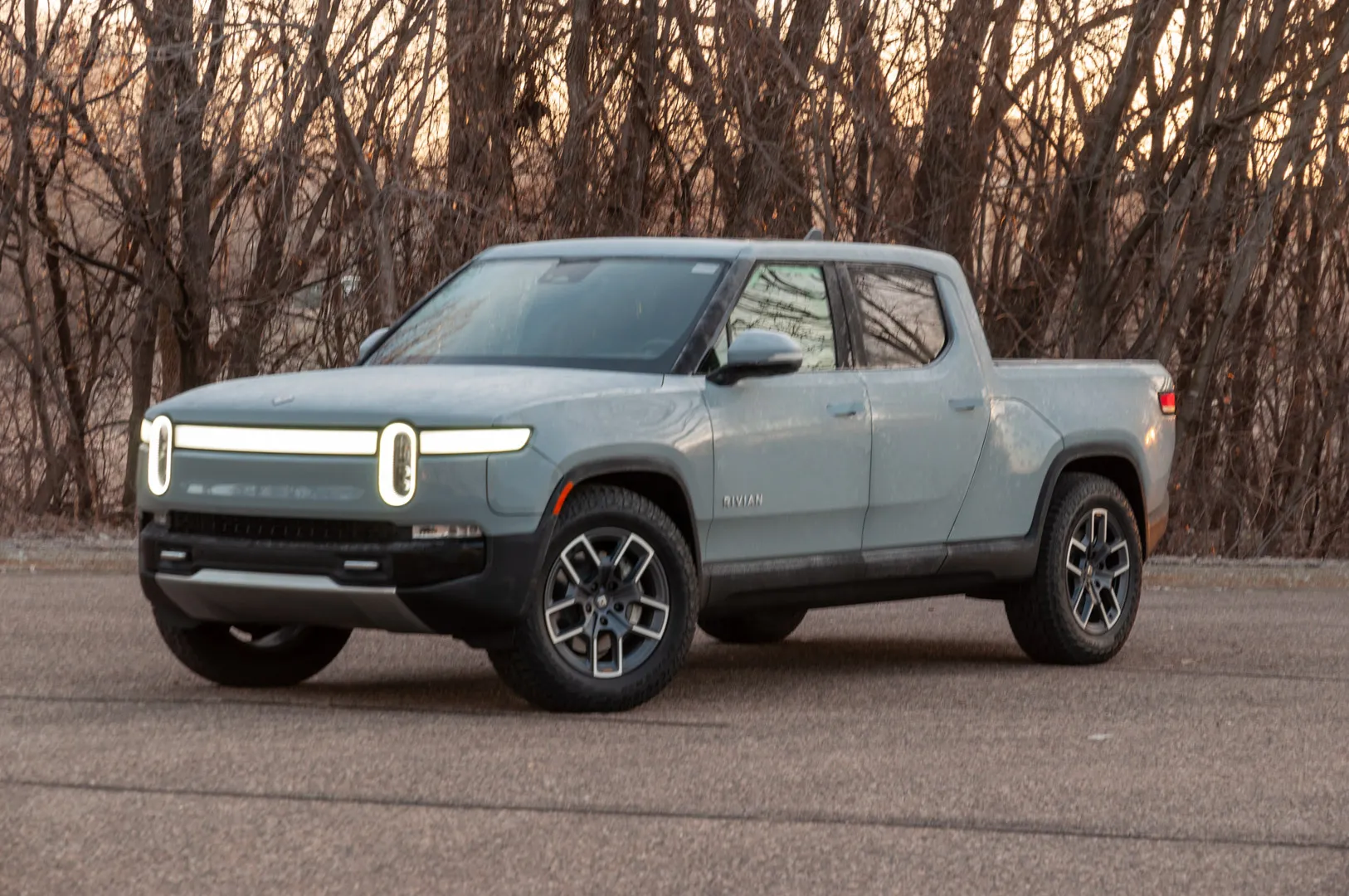At the reveal of its Jeep Wagoneer S electric SUV, the Stellantis SUV brand on Thursday confirmed plans to push ahead with what potentially might amount to a great many different electrified powertrain options across its lineup later in the decade.
That includes extended-range EV versions of the Wagoneer and Grand Wagoneer, which were confirmed for the first time, for “next year,” by Jeep CEO Antonio Filosa, in a Q&A with the press following the reveal.
Filosa also confirmed that the extended-range Wagoneer versions will retain their three-row layout, but the Wagoneer S EV won’t be offered as a three-row.
Prior to their electrified versions, the big, body-on-frame Wagoneer and Grand Wagoneer offer a twin-turbo 3.0-liter inline-6, making 420 hp or 510 hp. EPA fuel economy ratings come in at just 17 to 20 mpg combined, depending on the version. They’re significantly larger on the outside than the Wagoneer S EV.
2024 Jeep Wagoneer
The range-extended Wagoneer and Grand Wagoneer models might be followed, on a timeline not yet confirmed, by a range-extended version of the Wagoneer S, which is built on the STLA Large platform, Filosa hinted. The STLA Large platform itself has already been outlined as “BEV native” but ready for applications with internal combustion systems “without compromising key vehicle capabilities.”
Baskin-Robbins approach to electrified Jeeps
In what’s shaping up to seem almost like the polar opposite of Tesla’s limited number of build combinations, Jeep plans to offer multiple hybrid configurations, plug-in hybrids, battery electric models, and range extended EVs. That adds up to a great many vehicles that nearly overlap, technology-wise. It’s not quite the overwhelm of a 31-flavors Baskin-Robbins approach to SUV selection, but it might seem like it to some shoppers.
“We’ll have everything but fuel cells,” underscored Filosa, as he spelled out all those powertrain types.
“It’s all about choice for us. Just saying here’s the BEV, here’s the ICE, is not a good option for us,” elaborated Stellantis chief technology officer Ned Curic. Curic verified to Green Car Reports that every model in the lineup will offer multiple levels of electrified choice, and Jeep will offer ICE, plug-in hybrid, BEV, and range-extended EV choices across its lineup; but there will not be a single model that will offer all four.
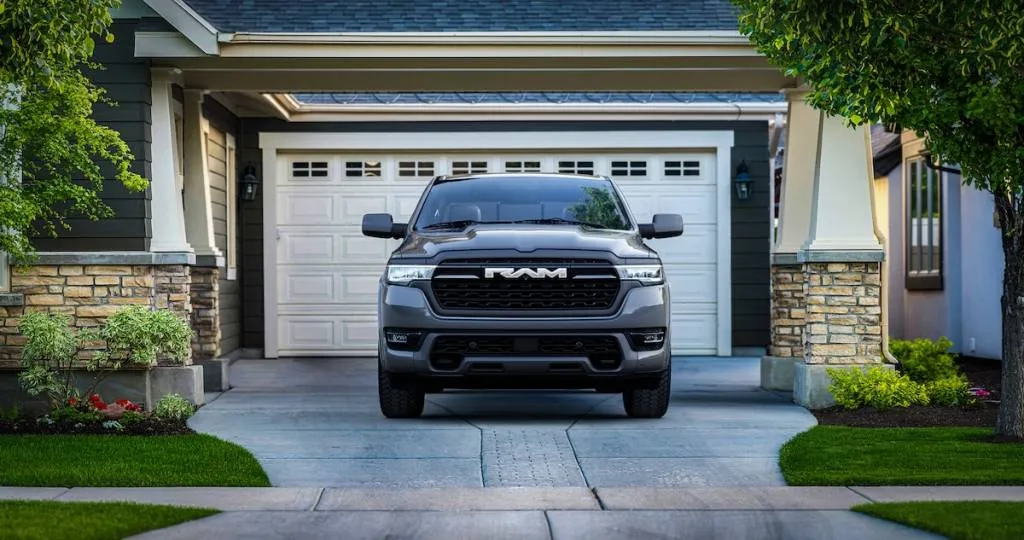
2025 Ram 1500 Ramcharger
Jeep parent Stellantis has already developed the range-extended truck called the Ram 1500 Ramcharger, that builds on the Ram 1500 REV fully electric version, subbing in a somewhat smaller 92-kwh battery pack (vs. 168- or 229-kwh for the REV) and adding a 27-gallon gas tank and a V-6 engine to act essentially as a rolling generator as needed. The REV is coming in Q4 of 2024, while the Ramcharger arrives about six months later, according to company officials.
The Ramcharger will be the first test for such an application—a plug-in series hybrid, with a longer-range battery pack—since the Fisker Karma and its Karma GS-6 and Revero descendents. Honda hybrids (and the former Chevy Volt) primarily use a series-hybrid setup but allow a parallel mode, clutching in the engine, at some cruising speeds.
Ramcharging an electric Jeep Wagoneer
The Wagoneer will get an adapted version of the Ramcharger’s tech. While the Wagoneer is built on the regular Ram versions’ platform, the Ram 1500 REV and Ramcharger ride on the STLA Frame platform. But, executives confirmed, it will follow the same approach as the Ramcharger, with a much larger battery pack versus plug-in hybrids.
In addition to the 4xe plug-in hybrids, like the bestselling Jeep Wrangler 4xe, that the brand has introduced over the past several years, Jeep has traditionally offered several different levels of off-road ability. So the various versions could add up to a higher level of inventory complexity for dealers, and a greater level of technical explanation needed by shoppers.
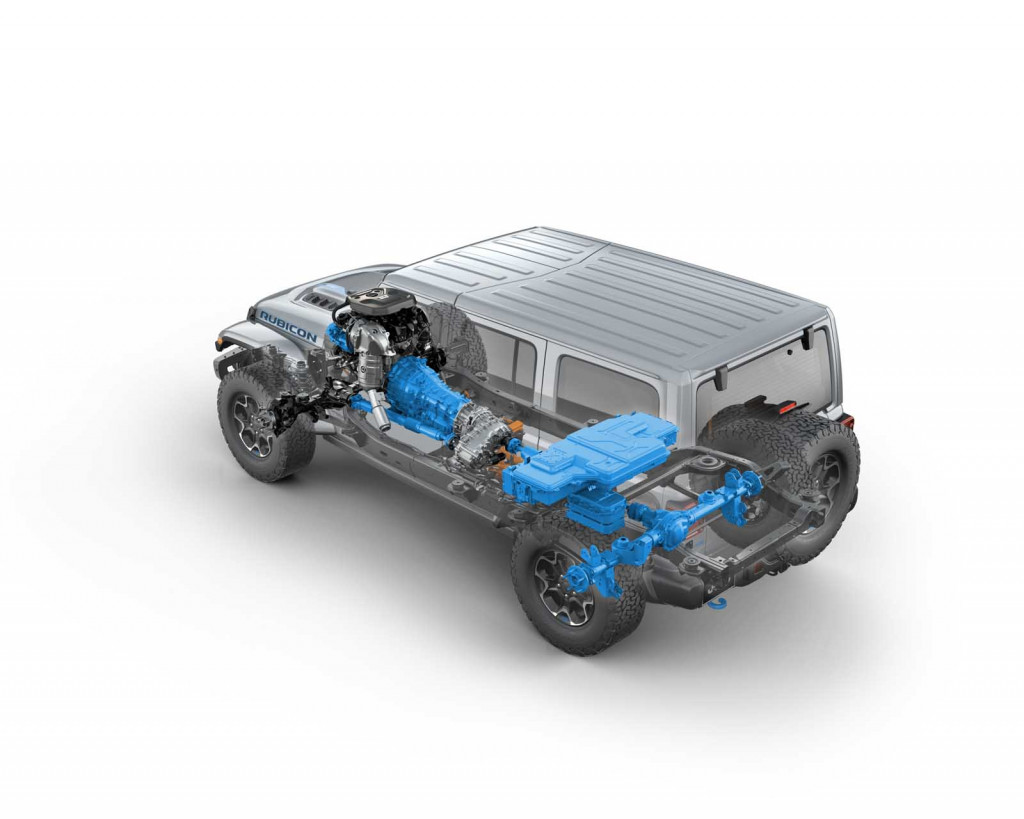
2021 Jeep Wrangler 4xe
But Curic doesn’t think it will be so complicated to communicate to consumers. “You give customers a choice and the market is going to decide,” he said. “The customer wants more EVs, we sell more EVs; the customer wants more hybrids, we sell more hybrids; it’s as simple as that.”
Of course it’s far more complicated than that given a wide range of policy factors, ranging from EPA rules that incentivize plug-in hybrids starting in 2027, EV tax credits that may apply to these PHEVs and range-extended EVs and, even beyond EVs themselves, tariff threats to China and isolationist trade tactics anticipated by both major-party Presidential candidates.
Range-extended vs. PHEV: Which is the better?
That said, Green Car Reports pressed Stellantis’ Curic for hints of which types of Jeep models might be extended-range EVs versus which types might be plug-in hybrids, and the executive added some clarity that off-roaders might make the best sense with the tech.
“For the off-roading, range-extended is better, because it gives you more juice, more power, more torque,” he said, and the finesse of motor controls. And, he added, you can preserve the same driving attributes whether running on the battery or blended with the engine on.
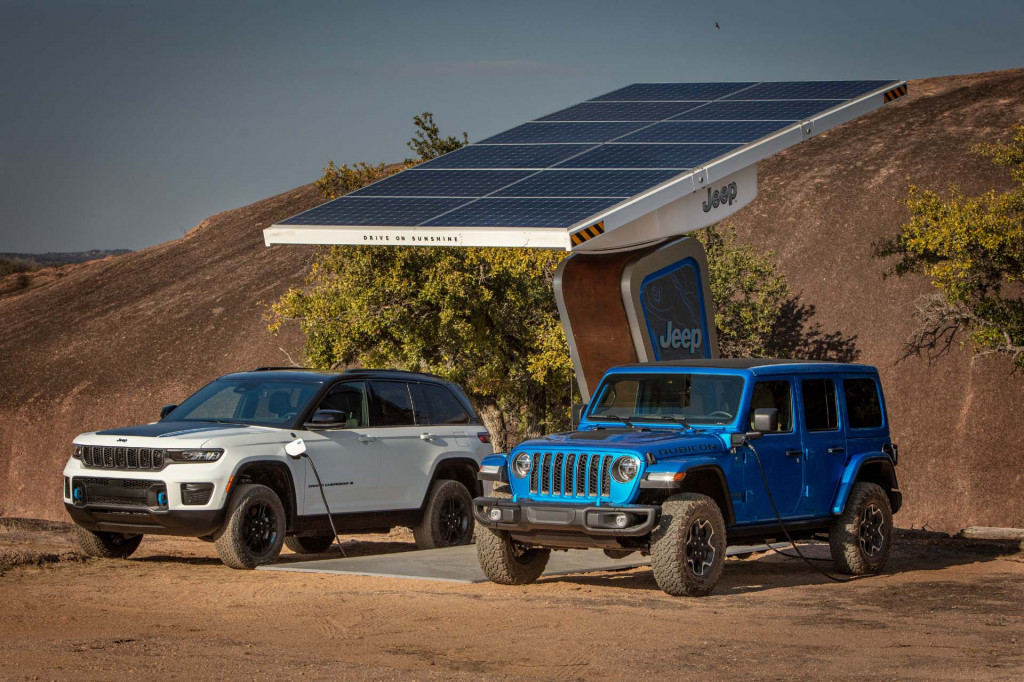
2022 Jeep Grand Cherokee 4xe
But with Wagoneer and Grand Wagoneer probably the models in the lineup farthest away from rock-crawling, and the Grand Cherokee 4xe and Wrangler 4xe relying on a traditional plug-in hybrid system, that could amount to a confusing launch for the tech.
Curic didn’t add to that, but he emphasized the company’s flexibility. “We’ve instrumented multiple plants, so we have a scale to deliver as many vehicles as customers need,” he said.
For all the contingencies, the one tech in its roadmap it hasn’t allowed form Curic reiterated, is a fuel-cell option for the Jeep brand—although Stellantis will offer them on a company basis through some of its other brands.

